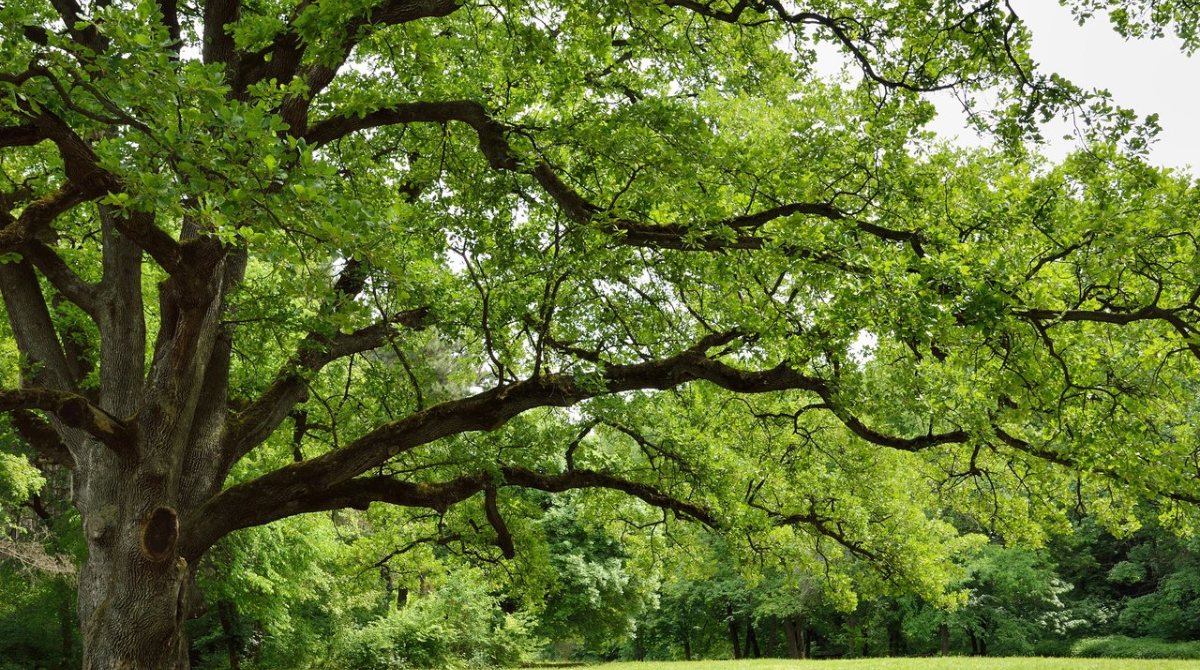
Date July 11, 2024
In the bustling city of Fort Worth, trees play an integral role in creating a vibrant, healthy urban environment. As we become more conscious of our ecological footprint, adopting eco-friendly tree care practices is crucial for maintaining the health and longevity of our urban forests. Sustainable tree care not only minimizes environmental impact but also ensures that our trees thrive for generations to come.
The Importance of Eco-Friendly Tree Care
Eco-friendly tree care is about nurturing trees using methods that are both effective and sustainable. This approach focuses on reducing chemical use, conserving water, promoting biodiversity, and enhancing soil health. TreeNewal uses an eco-friendly tree approach.Here are some key reasons why eco-friendly tree care is important:
- Reduces Environmental Impact: Minimizes the use of harmful chemicals and practices that can damage the environment.
- Promotes Tree Health: Encourages natural growth and resilience, making trees more resistant to diseases and pests.
- Conserves Resources: Efficient use of water and other resources helps preserve them for future generations.
- Supports Biodiversity: Healthy trees provide habitat and food for various wildlife, promoting a balanced ecosystem.

Sustainable Tree Care Techniques
1. Organic Mulching
Organic mulching is a simple yet highly effective eco-friendly practice. Mulch helps retain soil moisture, regulate temperature, and suppress weeds. Using organic materials like wood chips, leaves, and grass clippings enriches the soil as they decompose.
- Conserves water by reducing evaporation.
- Enhances soil fertility and structure.
- Provides a habitat for beneficial organisms.
- Suppresses weed growth naturally.
2. Water-Wise Irrigation
Water is a precious resource, especially in urban areas like Fort Worth. Implementing water-wise irrigation techniques ensures trees receive adequate hydration without waste.
Water-Wise Techniques:
- Drip Irrigation: Delivers water directly to the root zone, minimizing evaporation.
- Soaker Hoses: Provide slow, even watering that penetrates deep into the soil.
- Rainwater Harvesting: Collecting rainwater for irrigation reduces reliance on municipal water supplies.
- Watering Schedules: Water trees early in the morning or late in the evening to reduce water loss through evaporation.
3. Natural Pest and Disease Control
Using natural methods to manage pests and diseases helps maintain a healthy tree ecosystem without harming the environment.
Natural Pest Control Methods:
- Beneficial Insects: Introducing ladybugs, lacewings, and predatory beetles that feed on harmful pests.
- Neem Oil: A natural pesticide that controls a variety of pests without toxic residues.
- Companion Planting: Growing plants that repel pests near trees (e.g., marigolds, garlic).
- Manual Removal: Regularly inspecting trees and manually removing pests.
4. Soil Health Enhancement
Healthy soil is the foundation of strong, resilient trees. Enhancing soil health through organic means supports tree growth and reduces the need for chemical fertilizers.
Enhancing Soil Health:
- Composting: Adding compost improves soil structure, fertility, and microbial activity.
- Cover Crops: Planting cover crops like clover or rye grass prevents soil erosion and adds organic matter.
- Mycorrhizal Fungi: Introducing beneficial fungi that form symbiotic relationships with tree roots, enhancing nutrient uptake.
- Avoiding Soil Compaction: Minimizing heavy machinery use and foot traffic around tree bases to maintain soil structure.
Eco-Friendly Pruning and Trimming
Proper pruning and trimming are essential for tree health, but doing it sustainably can make a significant difference. Here’s how to approach pruning and trimming with an eco-friendly mindset:
- Timing: Prune during the tree’s dormant season to reduce stress and disease risk.
- Selective Pruning: Remove only dead, damaged, or diseased branches, maintaining the tree’s natural shape.
- Manual Tools: Use manual pruning tools instead of gas-powered ones to reduce carbon emissions.
- Waste Management: Compost or recycle pruning waste instead of sending it to landfills.
Promoting Biodiversity
Encouraging biodiversity in your landscape supports a healthy ecosystem. Diverse plantings can attract beneficial wildlife and create a balanced environment.
- Plant Variety: Include a mix of native trees, shrubs, and plants to promote a diverse ecosystem.
- Habitat Creation: Provide birdhouses, bat boxes, and insect hotels to support wildlife.
- Avoid Monocultures: Planting a variety of species reduces the risk of pest and disease outbreaks.
Community Involvement and Education
Community involvement is crucial for the success of eco-friendly tree care initiatives. Educating the public about sustainable practices and encouraging participation can lead to healthier urban forests.
- Workshops and Seminars: Host events to teach residents about eco-friendly tree care techniques.
- Volunteer Programs: Organize tree planting and maintenance activities with community volunteers.
- Educational Materials: Provide brochures, websites, and social media content that promote sustainable practices.
- School Programs: Engage students with tree care education and hands-on activities.
The Role of Professional Arborists
Professional arborists play a vital role in implementing eco-friendly tree care practices. They bring expertise, experience, and the right tools to ensure trees are cared for sustainably.
- Certified Arborists: Hiring certified arborists ensures that tree care practices are both effective and environmentally friendly.
- Integrated Pest Management (IPM): Arborists can design IPM programs that use a combination of biological, cultural, and mechanical methods to control pests.
- Custom Care Plans: Professional arborists can develop customized tree care plans that address specific needs and conditions of trees in Fort Worth.
TreeNewal’s Commitment to Eco-Friendly Tree Care
At TreeNewal, we are dedicated to providing eco-friendly tree care services in Fort Worth. Our team of certified arborists is committed to sustainable practices that enhance tree health and protect the environment.
Our Services Include:
- Organic mulching and soil health improvement.
- Water-wise irrigation systems.
- Natural pest and disease control methods.
- Sustainable pruning and trimming practices.
- Promoting biodiversity through diverse plantings.
- Community education and involvement initiatives.
Conclusion
Adopting eco-friendly tree care practices in Fort Worth is essential for creating a sustainable urban environment. By focusing on natural methods, conserving resources, and promoting biodiversity, we can ensure that our trees remain healthy and resilient. At TreeNewal, we are proud to lead the way in providing sustainable arborist services that benefit both our community and the environment. Contact us today to learn more about how you can implement eco-friendly tree care practices in your landscape.
Take the first step towards a greener future with TreeNewal’s eco-friendly tree care services in Fort Worth. Our certified arborists are here to help you maintain healthy, beautiful trees using sustainable practices. Contact us today to schedule a consultation and join us in promoting a healthier urban forest.








